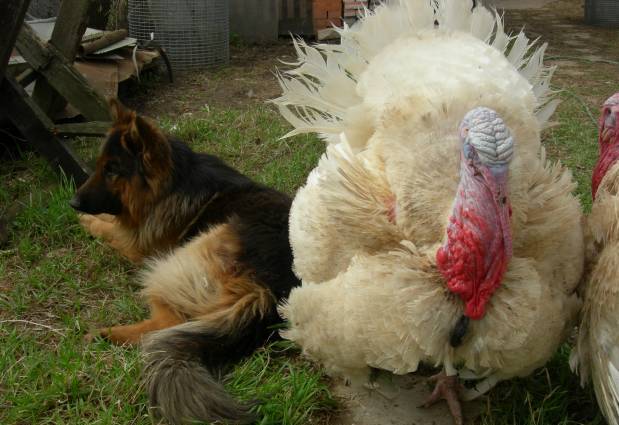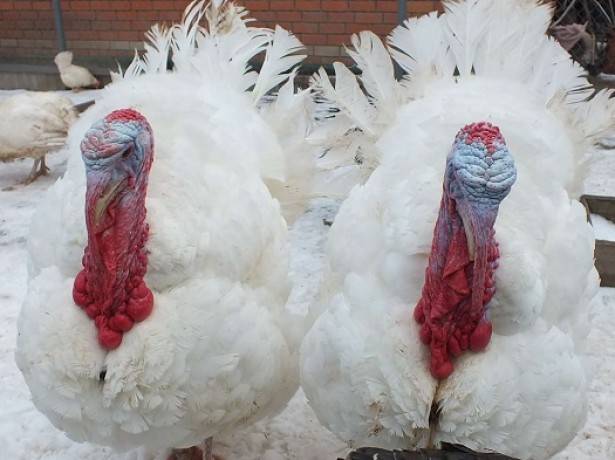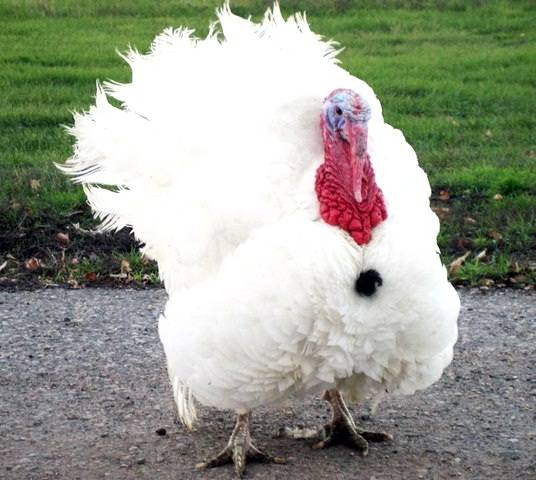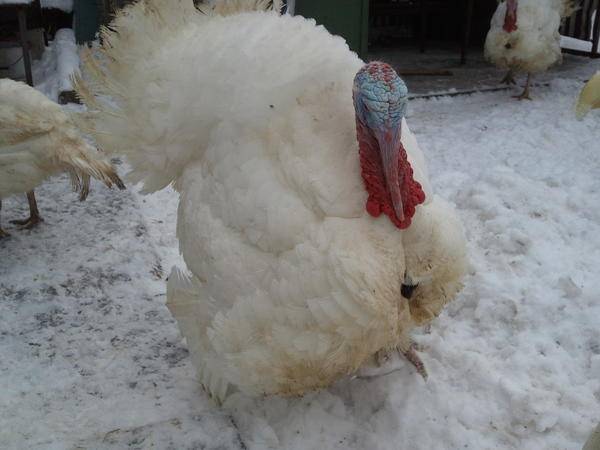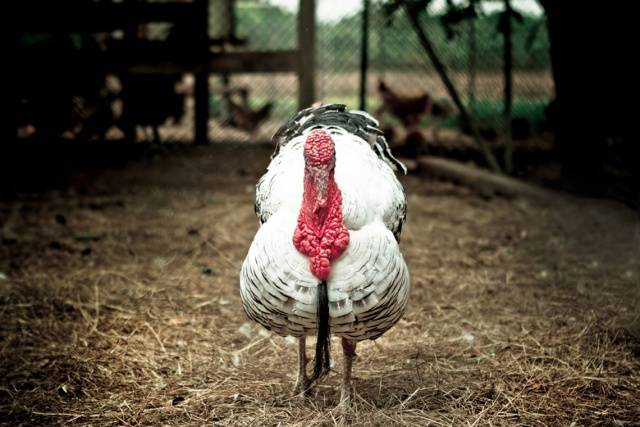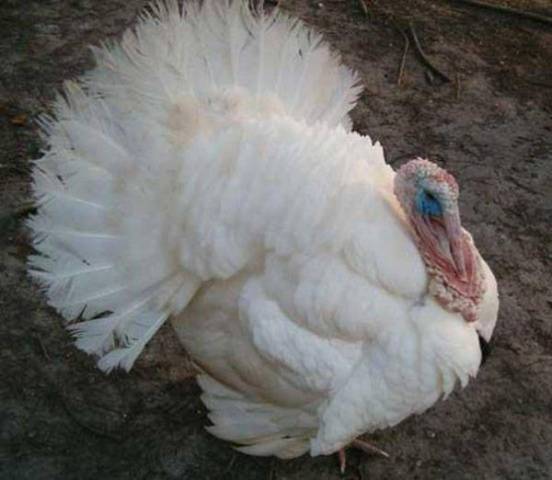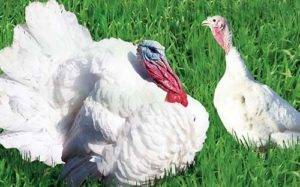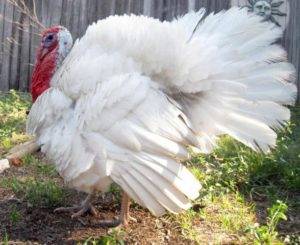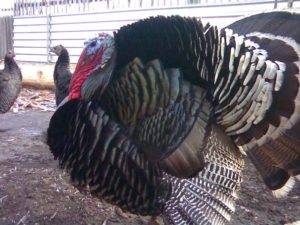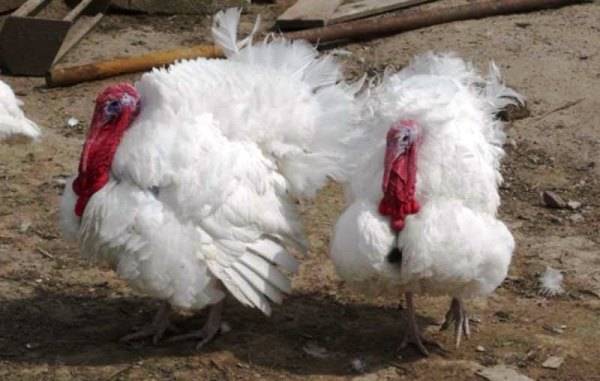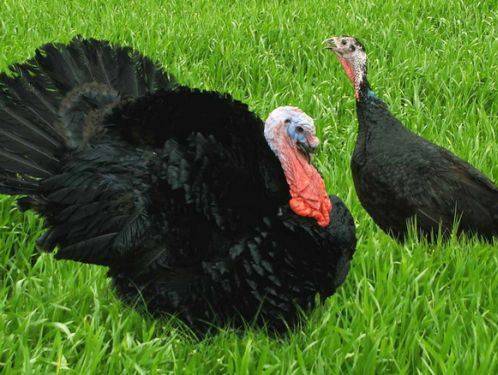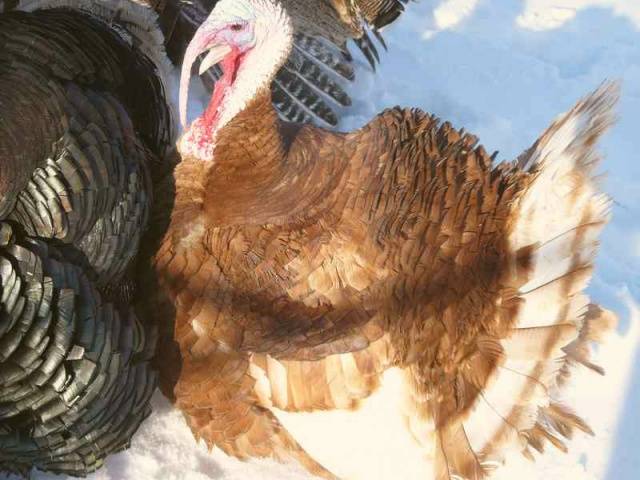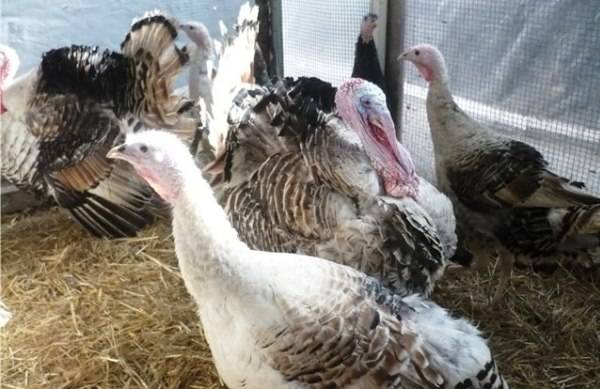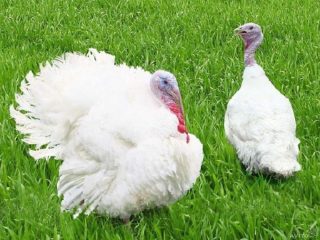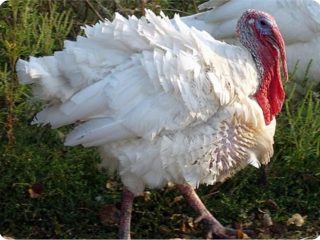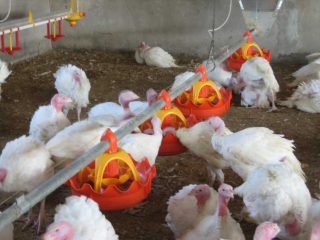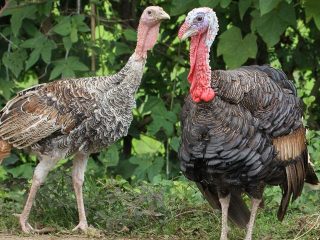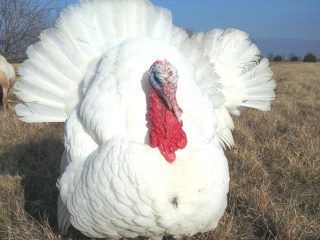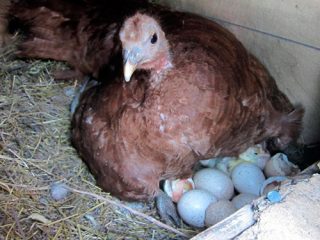The turkey breeds are small in variety, unlike geese, chickens or ducks. Information about this bird from all countries goes to the world data collection organization. At the moment, there are more than thirty registered breeds around the world, seven of which are considered domestic. In general, about 13 species of birds are widespread in the vastness of our homeland. What is considered the best breed of turkeys for home breeding, we will now try to figure it out.
Broiler turkeys
Usually turkey is raised at home for meat. Now, individuals of the broiler direction have become very popular. But in order to get a good result, you will have to feed with vitamin food using a special technology. Also, broilers in the summer season need to include vegetables and herbs.
To breed broiler turkeys, young animals are bought. From the first day, for ten days, the chicks need enhanced feeding, up to nine times in 24 hours. Young turkeys consume the feed day and night. When broilers grow up, the number of feeds is gradually reduced, but the portion of the compound feed is increased. In principle, turkeys do not go over their food. The bird eats any food waste. However, it is better to provide such feeding to adults. It is recommended to feed small turkey poults only with complete feed.
Until broiler turkeys grow up, they need to provide a warm room with an air temperature within 24aboutC, lighting and cleanliness. The place where the bird is kept should be well ventilated, because in addition to the unpleasant smell, the air around is filled with fine dust. At the same time, drafts must be avoided.
Broiler turkeys grow up quite large, which is why they are valued in the household. For example, the average weight of a live male can be up to 30 kg. The female grows smaller than about 11 kg.
Big-6 crosses are popular among broilers. In the household, they are appreciated due to the large meat yield from the carcass. The figure is about 85%, which no poultry can boast of. At the age of four months, the Big-6 gains marketable weight.
Broiler turkeys White Shirokogrudy and Moscow Bronze have proven themselves quite well. The turkey of the Hybrid Converter breed is popular among domestic poultry farmers.
But probably in second place after the Big-6 is the Canadian Broad-breasted broiler turkey. Poultry is famous for its unpretentious care. Turkeys do not pick up food, and after three months with a weight of 9 kg they can be used for slaughter.
If the female is left on the egg, then she will begin to lay from about the ninth month. Interestingly, almost all eggs are fertilized.
The video shows the biggest turkeys:
Meat turkeys
Broiler turkeys are usually bred for meat. Let's take a closer look at the breeds of this bird, suitable for home breeding.
White Broad-chested
This breed of turkeys is divided into three subspecies:
- Individuals of the heavy cross in the fourth month of life reach a weight of 7.5 kg. The weight of an adult male ranges from 25 kg. The turkey weighs almost half as much, about 11 kg.
- Individuals of the average cross at the age of three months gain weight up to 5 kg. An adult turkey weighs up to 14 kg, and the female weighs only 8 kg.
- Individuals of light cross at three months weigh about 4 kg. An adult male weighs 10 kg. The weight of an adult female reaches 6 kg.
This breed of turkeys is a hybrid and was bred specifically for meat production. Moreover, its content contains a lot of protein, a minimum of fat and cholesterol. The early maturity of the poultry, supported by the high quality of meat, defines this breed as the best for the household.
Meat breed Big-6
We mentioned a little about these broilers above. Turkeys are hybrids, and bred taking into account the meat direction. Individuals are distinguished by a high rate of early maturity. You can determine whether a bird belongs to the Big-6 breed by its white plumage with a black spot on the chest. At the age of three months, the weight of a turkey can reach 5 kg. Usually, adults are slaughtered in the period from 85 to 100 days of life. This is due to the fact that after this period the bird stops growing.
Meat breed BUT-8
BUT-8 hybrids are characterized by powerful paws and light, most often white, plumage. An adult male is able to gain weight up to 26 kg. Females usually weigh no more than 11 kg. Despite the impressive weight, turkeys of this breed are considered average. Those who like bigger birds should pay attention to related hybrids BUT-9.
Egg turkey breeds
Oddly enough, but turkeys are also kept on eggs, often for the sake of reproduction. However, many individuals also grow to an impressive weight, which allows them to harvest meat at home.
Egg breed Virginia
Because of the white plumage, the hybrid is often referred to as the "Dutch" or "White" turkey breed. Individuals of males and females do not grow large. By constitution, the turkey can be confused with an individual of another well-known breed - "Bronze". For the cultivation of this bird, it is required to create conditions close to natural. That is, you will need a walk, for example, on a personal plot. An adult turkey weighs about 9 kg. The turkey grows small, only 4 kg. The breed is famous for its high egg production - up to 60 eggs per season.
Egg breed Big-9
Individuals of the heavy cross are popular in home breeding due to their good endurance and undemanding arrangement of special conditions for them. In addition to high egg production, poultry have high qualities of the meat direction. An adult turkey reaches a weight of 17 kg. The female is almost two times lighter than the male. Its weight is about 9 kg. A turkey is capable of laying 118 eggs per season, and at least 80% of them will be fertilized.
Egg breed Universal
Individuals of this breed are characterized by a wide body structure, strong wings and long legs. The weight of an adult turkey reaches 18 kg. The female weighs a little less - about 10 kg. In the fourth month of life, males are able to gain up to 7 kg of live weight.
Egg breed Heaton
Quite large egg-laying bird is undemanding in domestic breeding. An adult turkey grows to weigh about 20 kg. The turkey is not far behind the male, and is gaining weight up to 16 kg. During the season, the female is able to lay up to 100 eggs.
Egg breed Bronze Broad-chested
This bird is famous for the beauty of its feather. In males, the plumage is sometimes bronze and green. The females are more dominated by the traditional white color. In adulthood, a turkey is able to gain weight up to 16 kg. The female's weight is usually within 10 kg. A turkey can lay up to 70 eggs per season.
Egg breed White Moscow
The white plumage of these turkeys can be confused with Big-6 individuals. They also have a black spot on their chest. Only the White Moscows are inferior to them in weight. At the age of one year, the male gains up to 16 kg of weight, and the female has a mass of 8 kg.A turkey can lay no more than 105 eggs per season. The bird is very good for home growing due to its quick adaptation to various conditions.
Egg-meat turkey breeds
In the household, such turkeys are very beneficial. They have a high percentage of meat yield per carcass, plus good egg production.
Breed Black Tikhoretskaya
Poultry is characterized by a resinous plumage with a greenish tint. Individuals are distinguished by a strong constitution, hardy and highly mobile. Most of all, this subspecies is popular in home breeding in the Caucasus. An adult turkey usually does not grow more than 10 kg. The turkey is limited to 5 kg.
Breed Pale
Turkeys with beautiful plumage have taken root in the vastness of Georgia. Red and pink shades can be found in the brown color of the feather. Individuals are characterized by a wide physique. The weight of an adult male usually reaches 12 kg. Turkeys weighing more than 6 kg do not grow.
Breed Canadian Bronze
A very successful breed, surpassing broiler turkeys in meat productivity. An adult male is able to quickly gain weight up to 30 kg. Females are half the size of turkeys, however, body weight up to 15 kg is also not bad for poultry.
Conclusion
The video provides an overview of turkey breeds:
Summing up the review of different breeds of turkeys, White broad-breasted and White Moscow are very well suited for home keeping. Both subspecies are advantageous in terms of meat yield from the carcass, individuals adapt well to yard conditions and are undemanding to care for.
